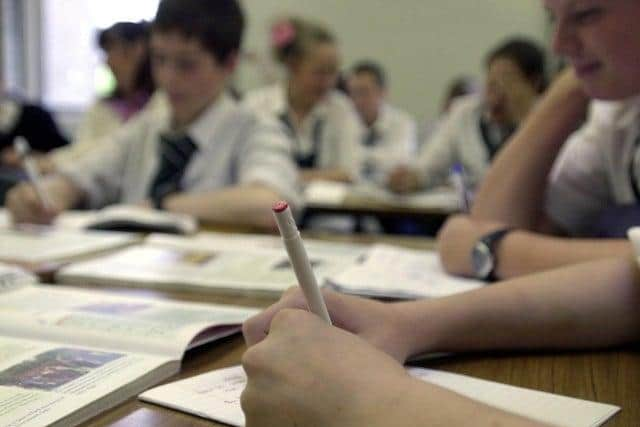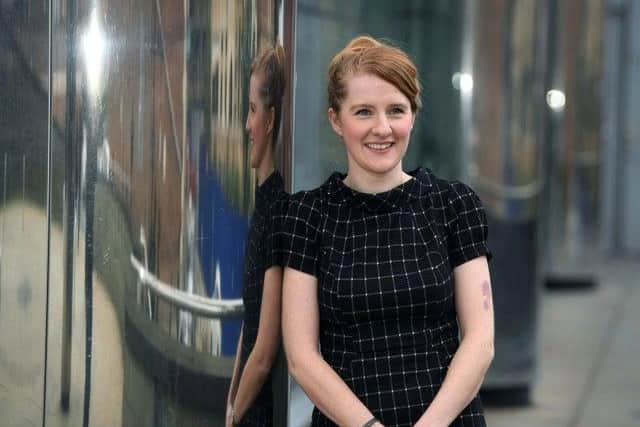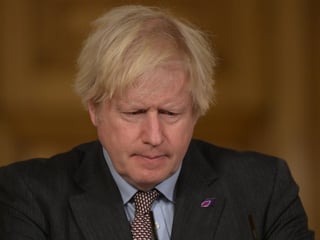'Act now' to prevent lost generation of children, Northern business and education leaders warn
A leading economic think-tank suggests that, while there is no simple North-South divide in the likely impact of coronavirus across England, in poorer northern areas, children may be especially at risk from lost schooling.
The Government has been urged to hand over more cash by the Institute for Fiscal Studies and Northern education and business leaders.


Advertisement
Hide AdAdvertisement
Hide AdA report from the Institute for Fiscal Studies (IFS), released today, suggested schools face a shortfall of £28.5bn for covid catch-up, as the cash given by the Government to help with lost learning is “insufficient,” with a need for a stronger policy response.
An author of the report also said northern communities are particularly vulnerable due to challenges to remote learning and high absence rates - including in Oldham, Rochdale and Knowlsey.
Luke Sibieta, a research economist at IFS and an author of the report, told The Yorkshire Post: “The many disadvantaged children across northern communities will have remote learning extremely hard, especially if they lacked the necessary digital equipment or study space.
"In addition, many children across the North West and Yorkshire will have missed out on weeks or maybe a month of normal schooling in the autumn too, especially when infection rates were high in October and November and many pupils were having to self-isolate.”


Advertisement
Hide AdAdvertisement
Hide AdAs a result of the pandemic, children across the UK are likely to lose at least half a year of normal, in person schooling.
The report from the IFS says this will contribute to lower educational progress and skills, particularly for disadvantaged pupils, with a potential cost of £350bn on the future economy.
This is due to a lost income of £40,000 per person over their lifetime.
The think-tank also warns the long-run risks to the public finances are also severe with an estimated £100bn less tax revenue for the future.


Advertisement
Hide AdAdvertisement
Hide AdThe IFS said the Government’s current £1bn Covid Catch up Fund allocated across the UK so far doesn’t “come close” to tackle the scale of this challenge.
Mr Sibieta said: "The inescapable conclusion is that lost learning represents a gigantic long-term risk for future prosperity, the public finances, the future path of inequality and well-being.
"We therefore need a policy response that is appropriate to the scale of the problem. One useful benchmark is the £30bn it normally costs for half a year of schooling in the UK.”
The Northern Powerhouse Partnership (NPP) - a lobbying group representing northern businesses - said long-term action is needed from the government, particularly across areas hit hardest in the North where there are high levels of long-term disadvantaged children.


Advertisement
Hide AdAdvertisement
Hide AdThis includes backing a northern mentoring programme for every disadvantaged pupil at GCSE level.
Lord O’Neill, vice-chair of the Northern Powerhouse Partnership, said: "This research is further evidence of the widening disadvantage gap in the education system, a gap that had widened even before the pandemic but has since deepened to a chasm.
"We need to ensure this funding is properly targeted those who have the furthest to climb - those who are from the most disadvantaged backgrounds or who have missed the most schooling.”
Former Treasury Minister Lord O'Neill added: "We need to ensure this funding is properly targeting those who have the furthest to climb."
Advertisement
Hide AdAdvertisement
Hide AdFiona Spellman, chief executive of the Northern education charity Shine, said the IFS report highlights the sheer scale of the educational gap which has been accelerated by the partial closure of schools.
Ms Spellman said: “The pandemic represents a once-in-a-generation opportunity to support communities in areas of disadvantage with the resources they need to help address children’s needs, both within and outside of school.
“Inequalities in our education system did not begin with COVID and nor will they go away when schools can reopen fully to all pupils.”
She added a time of “unprecedented strain” on the public finances, the Government must ensure that additional resources are targeted at all phases of the education system, in areas most in need.
Advertisement
Hide AdAdvertisement
Hide Ad"The cost of an inadequate response now could last for generations to come," she said.
Geoff Barton, General Secretary of the Association of School and College Leaders, added: "The government will need to put in place much more substantial catch-up funding to repair the damage to education caused by the pandemic, and all of this funding needs to go directly to schools and colleges."
A Government spokeswoman said: "We will invest a further £300 million in tutoring programmes, building on the existing £1bn Covid Catch Up Fund, but the Prime Minister was clear last week that extended schools closures have had a huge impact on pupils learning, which will take more than a year to make up.
"The Government will work with parents, teachers and schools to develop a long-term plan to make sure pupils have the chance to make up their learning over the course of this parliament."
______________
Support The Yorkshire Post and become a subscriber today.
Advertisement
Hide AdAdvertisement
Hide AdYour subscription will help us to continue to bring quality news to the people of Yorkshire. In return, you'll see fewer ads on site, get free access to our app and receive exclusive members-only offers. Click here to subscribe.
